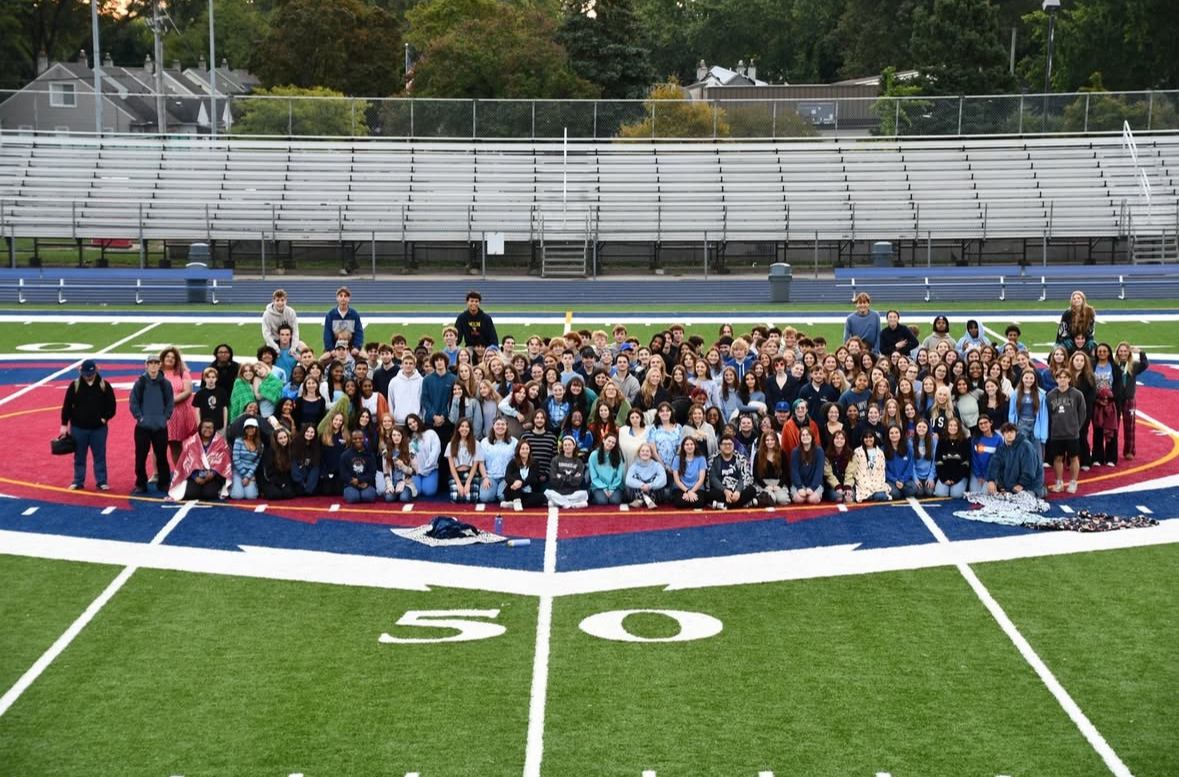The scent of freshly baked chocolate chip cookies wafts through the air, washing over me as a memory of when I was small, standing tippy-toed on a foot tall stool so that I could peer over the edge of the kitchen counter. I recall how the baking mix had smeared across my apron and the way my hair kept falling in my face, and still I was grinning ear to ear as my grandma slid the unbaked cookies into the oven, setting the timer with a turn of the ticker on the stove. For me, nostalgia is a lot like that. It fills me with warmth and comfort as I am reminded of a time when I was a kid, carefree and curious. While this is my nostalgia, this may not be the case for everyone else. So how does one distinguish what their own nostalgia is? Is it a feeling, or a mental state? A sensation, or a memory? Truthfully, nostalgia is all of these things combined in a unique way to create each person’s nostalgic experiences. As you read, consider what your nostalgia is, and how it continues to shape you into the person you are today.
The word’s meaning varies from person to person and has evolved since the term’s inception. Early on, in the mid-1800s, nostalgia was categorized as a ‘cerebral disease’, according to Britannica.com, and thus contained the negative connotation that it was a “bad” thing to experience. Additionally, the term was paired with diagnoses such as depression or homesickness. Since then, the word, as well as the feeling, have developed to be regarded as more of a fond longing. This large shift occurred over the span of years due to cultural shifts and developments in psychological research demonstrating the benefits of nostalgia.
Currently, as of March, 2025, Merriam Webster defines nostalgia as “a wistful or excessively sentimental yearning for return to or of some past period or irrecoverable condition.” In simple terms, nostalgia is a reminiscent feeling for the past. As we age, nostalgia often becomes more prominent, bringing back joyful or comforting memories. While nostalgia can be associated with experiencing strong emotions, it can also be spurred on by a wide assortment of human senses―the smells or sounds that serve as subconscious cues to remind us of a familiar time or experience.
An example of this might be spring. For some, the changing seasons provide a nostalgic feeling, like a warm blossoming in the chest. We may find that the familiar taste of rainwater on the air sparks an intimate recollection of past experiences. The sense of smell especially has a unique role in memories and nostalgia. For instance, studies have found that “human olfaction [or smell] is unique in its ability to cue the emotional aspects of autobiographical memory, including experiences formed early in life,” according to The National Library of Medicine (NLM). Additionally, the NLM explains that smells associated with nostalgia have been found to bring out three times more positive emotions than negative, as well as two times the amount of positive emotions found in another study, which examined nostalgia brought on by music. This highlights how certain scents spark feelings of nostalgia that are more inclined to be comforting or joyful.
Shifting away from external factors such as smells or sounds, nostalgia is also brought on by the passage of time, and the perceived speed at which we are growing up. Especially for the current senior class, there may be a growing sense of nostalgia simply because time continues to move forward. As seniors are expected to move on from this school, the floodgates of nostalgia open to reminisce over the experiences that have shaped students’ lives up to this point. Some, like Senior Lily Larson-Wolbrink, feel it in the seemingly ordinary things. Larson-Wolbrink describes how now, whenever she finds herself walking down Coolidge, it takes her back to being a freshman and sophomore, when she’d walk down the very same strip of pavement each day on her way to get lunch. And while nostalgia is happening for many seniors, they are not the only ones who are struck every so often by how quickly time seems to have passed.
The nostalgic experience is a natural human response to certain stimuli and situations, and is sometimes described as being ‘bittersweet’. It can’t be labeled as wholly good or bad―so how is it that both of these contrasting states exist within nostalgia? There’s a popular saying that sums things up quite well, it goes, ‘you don’t know what you have, until you’ve lost it.’
When something is lost, it’s easier to remember it for all of the ways that it was good, than to remember all the ways that it was not. Because of this, how we feel when experiencing nostalgia depends on how we look back on the past. So, we may start with warmth as we recall a past experience, and end with the ache of knowing we can never fully return to that memory. If we go more in depth, Nostalgia, as described by Psychology Today, typically diverges one of two ways; it can either be reflective, or restorative. In the former’s case, nostalgia is remembered with an acceptance of the present, whereas the latter suggests a need to recreate a time that has been idealized. This restorative nostalgia can be connected to feelings of regret or sadness, while reflective nostalgia is often associated with feelings of comfort and happiness as one appreciates the past, however does not long to relive it. Considering these two directions, some argue that the effects of nostalgia are less about the actual memory being recalled so much as the expectation we have for that memory.
While the entire experience of nostalgia has the potential to solidify your sense of self, it can also lead you down a cycle of sadness if delved into too often. In order to keep nostalgia an experience of growth and enjoyment, it’s important to embrace the fact that as much as we may love them, we will not be able to recreate some memories. However, memories exist to lay the foundations of who we are as people, and so they can always be revisited. As each of us transition into new stages of our lives, our memories will continue to be a source of comfort, so that one day, when things are hard and confusing, and we need a little nostalgia to remind us of the beauty that is life, it will be there waiting. And through sensations, strong emotions, and simply growing older, nostalgia will carry us back to those memories that we cherish―even if just for a moment.








